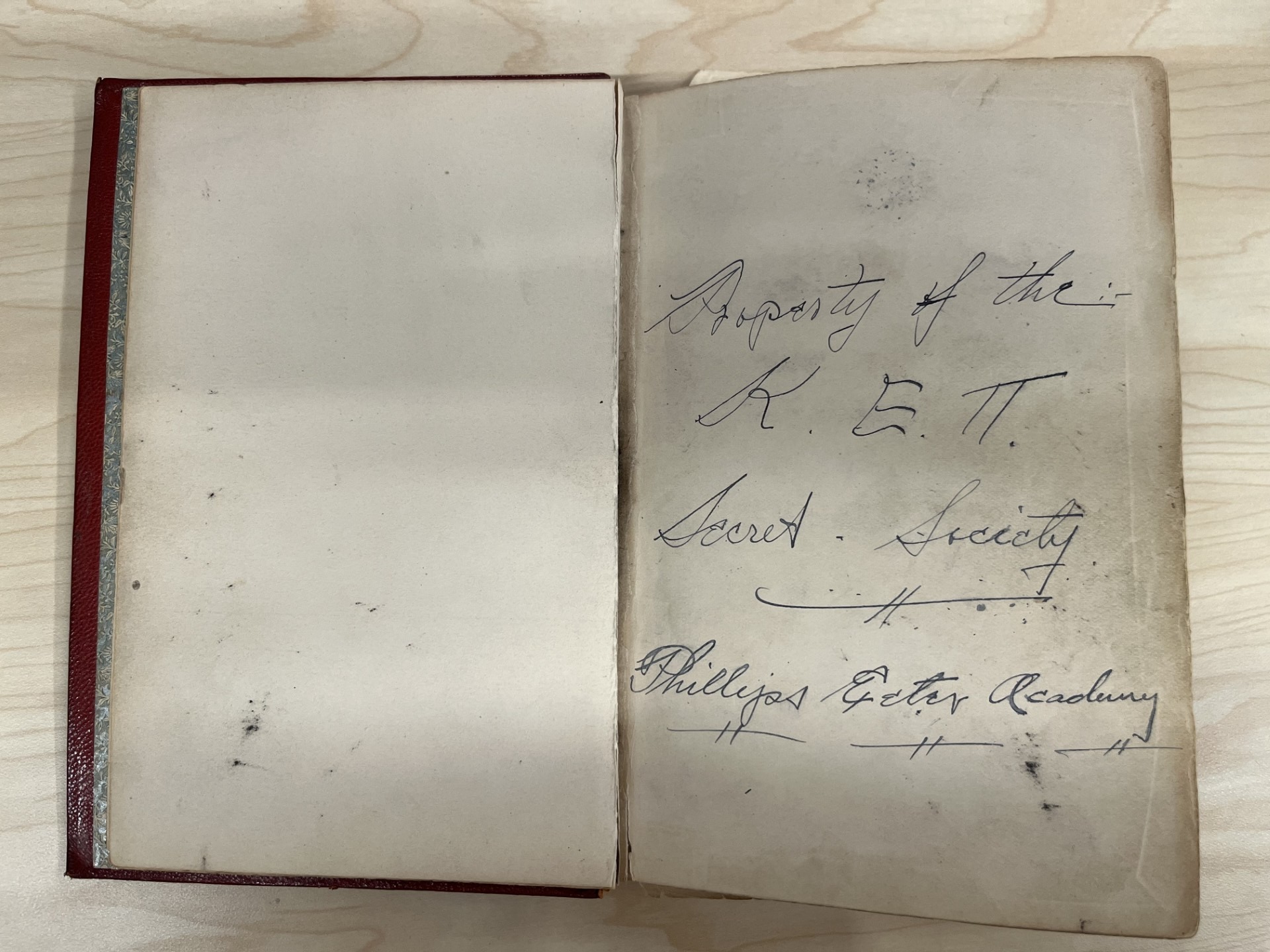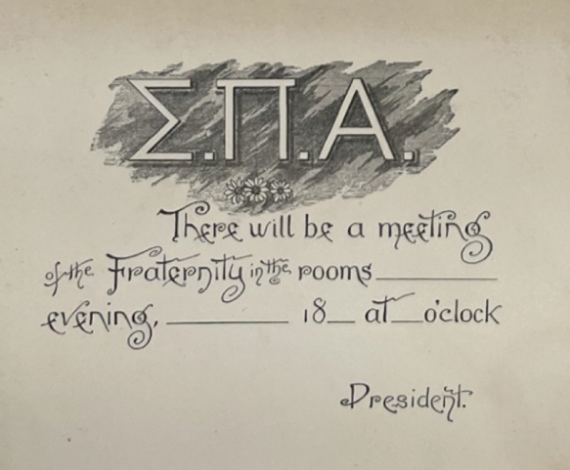The Secret Societies
The Secret Societies
 Skulls, crossed bones, swords and smoke — these are just some of the iconic symbols that represented Exeter’s early secret societies, or fraternities. Their origins trace back to 1818, when the Golden Branch Literary Society emerged as a secret organization. The first fraternity, Pi Kappa Delta, was started about 1870, but not until the 1890s did a growing number of these groups begin to stir intrigue, mystery and controversy.
Skulls, crossed bones, swords and smoke — these are just some of the iconic symbols that represented Exeter’s early secret societies, or fraternities. Their origins trace back to 1818, when the Golden Branch Literary Society emerged as a secret organization. The first fraternity, Pi Kappa Delta, was started about 1870, but not until the 1890s did a growing number of these groups begin to stir intrigue, mystery and controversy.
As a 1935 article in The Exonian described, the secret societies distressed some faculty and the administration: “They openly opposed faculty authority. The initiations were held late at night, and in some cases, all night, and the candidates were injured both mentally and physically, so that their class work began to drop.”
The initiation ceremonies, as chronicled in the article, were both eerie and humiliating. One society, for instance, took initiates to an old burial vault lit only by candles. Other societies, it recounted, were notorious for their physical tests, including branding candidates with a cigar and requiring candidates to appear in “fantastic and almost no clothes at classes, sell peanuts to the faculty and townspeople, and make speeches from a soap box at what is now the town bandstand.”



